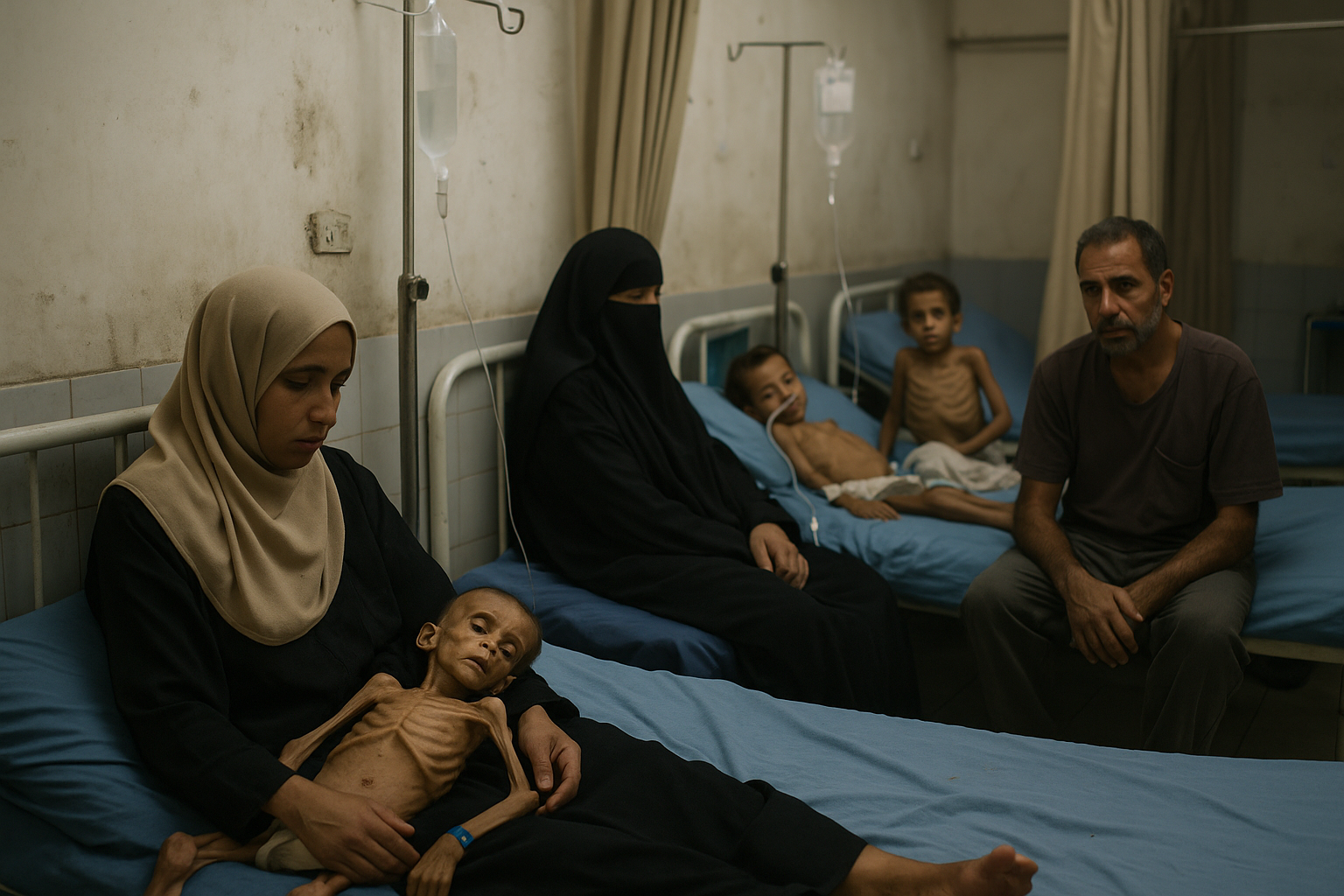UN Expert Warns of Famine in Gaza, Urges Urgent and Unimpeded Humanitarian Aid
“Depriving people of food, water, and dignity has been a serious and recurring violation of this war, and it must end,” said Edwards.

The United Nations Special Rapporteur on Torture, Alice Jill Edwards, has issued a grave warning regarding the rising number of starvation-related deaths among Palestinians in Gaza, calling for immediate and unrestricted humanitarian assistance to avert what she describes as an impending famine.
Her statement comes amid increasingly harrowing reports of extreme hunger, malnutrition, and violence during food distribution in the besieged enclave, where over 2.1 million people remain cut off from consistent supplies of food, water, and medicine due to the ongoing conflict.
“Depriving people of food, water, and dignity has been a serious and recurring violation of this war, and it must end,” said Edwards. “The risk of all-out famine must be averted.”
Famine Risk Deepens Amid Violence and Restrictions
The humanitarian crisis in Gaza has escalated to catastrophic proportions in recent months. According to Edwards, Palestinians have reportedly been shot and killed while queuing for food, highlighting the dangers and desperation surrounding basic survival. Widespread hunger and severe malnutrition—especially among children, the elderly, and pregnant women—are surging, with international aid efforts continually hampered by blockades, military restrictions, and bureaucratic hurdles.
Edwards warned that famine and starvation are not simply natural outcomes of war, but often intentional or reckless policies that violate international humanitarian law.
“Parties to the conflict are obligated to provide adequate food and water to civilians under their control, allow humanitarian aid to reach besieged populations, and refrain from stealing or deliberately obstructing aid deliveries,” she emphasized.
A Preventable Human Catastrophe
The Special Rapporteur elaborated on the physiological and psychological impacts of starvation, stressing that the damage being inflicted on Gaza’s population is both foreseeable and preventable.
Starvation leads to a series of well-documented and life-threatening conditions:
-
Severe weight loss
-
Organ failure
-
Developmental damage in infants and children
-
Reproductive harm in pregnant and lactating women
-
Mental health impacts such as hallucinations, stress, and trauma
Edwards emphasized that beyond the physical toll, the psychological anguish of not knowing when or if one will eat or drink is itself a form of cruel and degrading treatment.
“No one should have to suffer the humiliation of being forced to beg for food,” she said. “Especially not when supplies are waiting to be delivered.”
Temporary Aid Pause Not Enough
Edwards acknowledged and welcomed Israel’s recent announcement of limited humanitarian pauses, reportedly designed to facilitate World Food Programme (WFP) deliveries over a three-month period. However, she stressed that piecemeal gestures cannot substitute for a coordinated and sustained humanitarian strategy.
“What is urgently needed is not only the safe and consistent delivery of aid but also a cessation of hostilities and a return to diplomatic efforts rooted in a two-state solution,” she said.
UN officials and humanitarian workers have repeatedly called for permanent ceasefires, unhindered access to Gaza’s population, and international oversight of aid distribution, warning that any further delay could result in mass preventable deaths.
Call for Accountability and Justice
In her capacity as the UN Special Rapporteur on Torture, Edwards has repeatedly communicated with all parties involved in the conflict, raising allegations of inhumane treatment, arbitrary detention, and violations of international law.
She reiterated her calls for:
-
The immediate and unconditional release of all hostages
-
The release of arbitrarily detained Palestinians
-
Independent and transparent investigations into all alleged war crimes and human rights violations
“All parties must be held accountable,” Edwards said. “Justice and protection of human dignity are essential if we are to move toward peace and reconciliation.”
A Broader Humanitarian and Legal Crisis
The crisis in Gaza has reignited global scrutiny over the use of starvation as a weapon of war, a practice explicitly prohibited under international humanitarian law and the Rome Statute of the International Criminal Court (ICC). The situation further fuels debate over the adequacy of existing mechanisms to protect civilians during armed conflict.
International aid organizations have echoed Edwards' concerns, warning that Gaza may already meet the technical conditions for famine in certain areas, according to Integrated Food Security Phase Classification (IPC) criteria.
The unfolding situation serves as a stark reminder of the human cost of war and the urgent need for coordinated international response, legal accountability, and a sustainable political resolution.
ALSO READ
Catholic Church says a parish priest and several others injured after an Israeli strike hit a Gaza church, reports AP.
Catholic Church officials say 2 people were killed in Israeli strike on Gaza's only Catholic church, reports AP.
Russian Outcry: Israel's Airstrikes in Syria Raise International Concerns
Belgium Halts Military Transit to Israel via Flemish Region
Tragedy Strikes Gaza: Israeli Attack on Catholic Church










